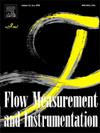Performance analysis of multi-jet water meters: Impact of aging under varying flow rates and water pressure levels
IF 2.3
3区 工程技术
Q2 ENGINEERING, MECHANICAL
引用次数: 0
Abstract
Accurate metering is essential for correct billing, identifying errors, and establishing a water balance for effective water loss control. This study provides a comprehensive analysis of the performance of widely used multi-jet water meters, ranging in age from new to 12 years, tested under varying flow rates and water pressures. Additionally, the annual consumption of a sample of 50 users was monitored to define typical flow rates and consumption profiles for determining the weighted error. A total of 560 m exposed to high water hardness were analyzed. A three-way ANOVA was conducted to assess whether measurement errors varied based on meter age, flow rate, and water pressure.
The results indicate that flow rate is the most significant factor influencing metering errors across all age groups, while age plays a secondary role. For meters aged 6–12 years, the impact of age on measurement accuracy is minimal and statistically insignificant. Water pressure has a negligible effect on metering errors for meters aged new to 5 years, but its influence becomes slightly more noticeable when considering meters aged 6–12 years. This study provides valuable insights into the performance degradation of aging water meters and emphasize the importance of performance analysis to ensure reliable metering. By effectively managing metering errors, water utilities can increase revenue and enhance capacity to provide better long-term services.

多喷嘴水表性能分析:不同流量和水压下老化的影响
准确的计量对于正确计费、识别错误和建立水平衡以有效控制失水至关重要。本研究对广泛使用的多喷嘴水表的性能进行了全面分析,这些水表的使用年限从新的到12年不等,在不同的流量和水压下进行了测试。此外,还监测了50个用户样本的年消耗量,以定义典型的流量和消耗量概况,以确定加权误差。对560 m高水硬度试样进行了分析。采用三因素方差分析来评估测量误差是否因仪表年龄、流量和水压而变化。结果表明,流量是影响各年龄组计量误差的最显著因素,年龄次之。对于年龄在6-12岁之间的仪表,年龄对测量精度的影响很小,统计上不显著。对于新至5年使用年限的电表,水压对计量误差的影响可以忽略不计,但对于6-12年使用年限的电表,水压对计量误差的影响略显明显。本研究为老化水表的性能退化提供了有价值的见解,并强调了性能分析对确保可靠计量的重要性。通过有效地管理计量错误,水务公司可以增加收入,提高提供更好的长期服务的能力。
本文章由计算机程序翻译,如有差异,请以英文原文为准。
求助全文
约1分钟内获得全文
求助全文
来源期刊

Flow Measurement and Instrumentation
工程技术-工程:机械
CiteScore
4.30
自引率
13.60%
发文量
123
审稿时长
6 months
期刊介绍:
Flow Measurement and Instrumentation is dedicated to disseminating the latest research results on all aspects of flow measurement, in both closed conduits and open channels. The design of flow measurement systems involves a wide variety of multidisciplinary activities including modelling the flow sensor, the fluid flow and the sensor/fluid interactions through the use of computation techniques; the development of advanced transducer systems and their associated signal processing and the laboratory and field assessment of the overall system under ideal and disturbed conditions.
FMI is the essential forum for critical information exchange, and contributions are particularly encouraged in the following areas of interest:
Modelling: the application of mathematical and computational modelling to the interaction of fluid dynamics with flowmeters, including flowmeter behaviour, improved flowmeter design and installation problems. Application of CAD/CAE techniques to flowmeter modelling are eligible.
Design and development: the detailed design of the flowmeter head and/or signal processing aspects of novel flowmeters. Emphasis is given to papers identifying new sensor configurations, multisensor flow measurement systems, non-intrusive flow metering techniques and the application of microelectronic techniques in smart or intelligent systems.
Calibration techniques: including descriptions of new or existing calibration facilities and techniques, calibration data from different flowmeter types, and calibration intercomparison data from different laboratories.
Installation effect data: dealing with the effects of non-ideal flow conditions on flowmeters. Papers combining a theoretical understanding of flowmeter behaviour with experimental work are particularly welcome.
 求助内容:
求助内容: 应助结果提醒方式:
应助结果提醒方式:


